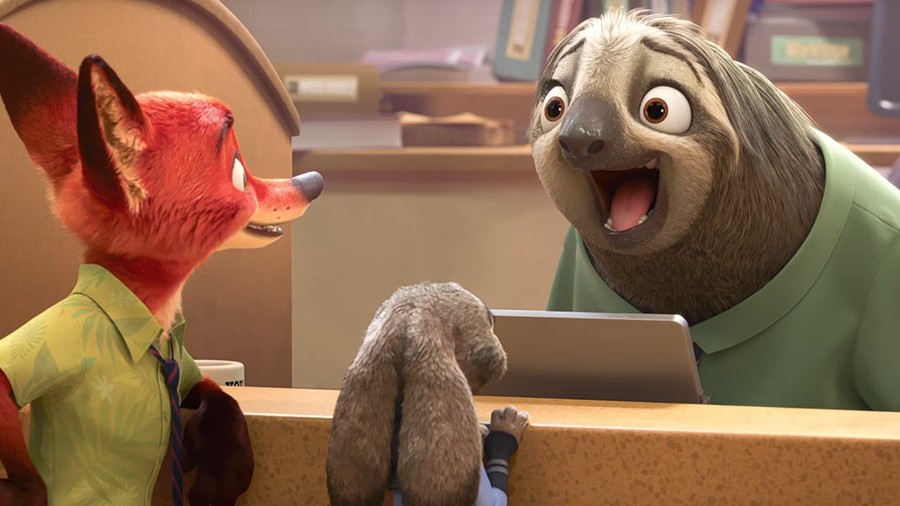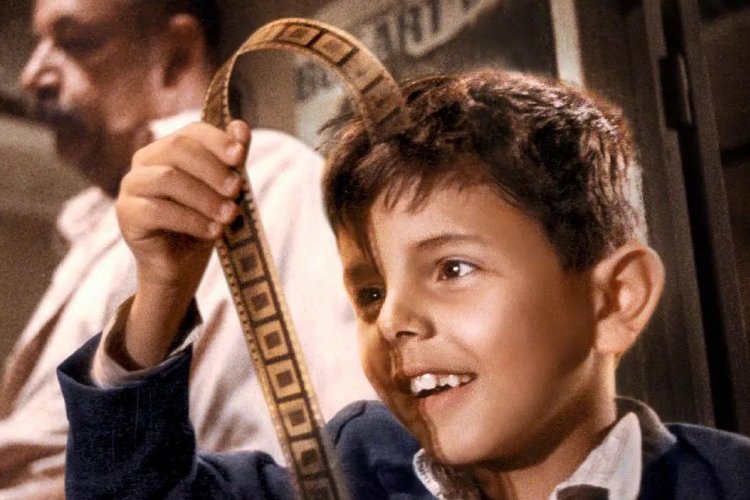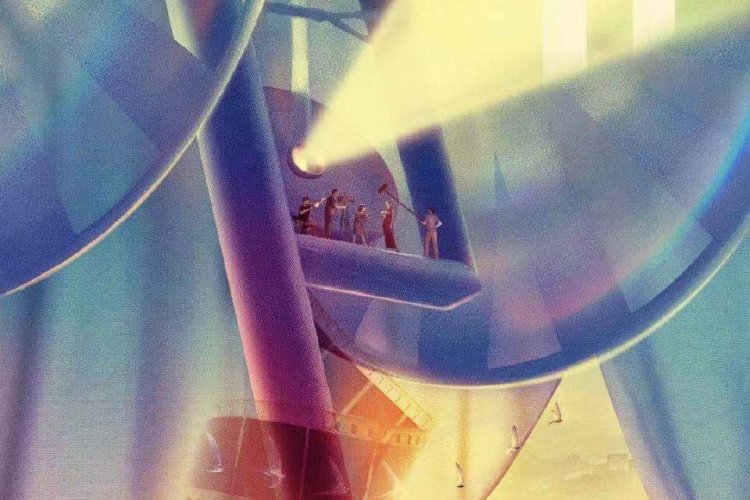Despite Being Condemned as US Propaganda, 'Zootopia' Likely to Become Disney's Top Movie in China
Disney’s latest animated feature Zootopia has been such a runaway success in China – raking in RMB 1.4 billion (USD 222 million), that it has even been granted a rare two week extension of its theatrical release.
The film was supposed to have wrapped up at cinemas on April 3 but now it looks like it has a solid chance of passing Avengers: Age of Ultron on Friday to become Disney’s highest-grossing film ever in China. It's also expected to surpass Kung Fu Panda 3 to become China's highest-grossing animated film.
Propelling the movie’s success has been an enormous amount of social media buzz fueled by memes aplenty. Netizens have even dubbed some of the the scenes featuring the fox, rabbit, and sloth characters into different dialects, like Inner Mongolian, Sichuanese, Mandarin, and Shanghainese.
The film has so captivated audiences in the Middle Kingdom that there are even reports that black-market sales of fennec foxes – the type of creature and main character played by Nick Wilde – have exploded. According to the LA Times, you can buy a couple of fennec foxes for just USD 6,150.
But despite the movie’s success, not everyone is a fan.
“Hollywood has long been an effective propaganda machine for the US by using blockbuster films to promote US values and global strategy,” thundered an editorial in the PLA Daily on Wednesday.
“In a world of cruel reality, it is always a wolf that eats a sheep instead of the other way round. Such a fundamental concept that even a child could understand was easily turned around by Hollywood,” the article said, sounding like a Philosophy undergrad having a particularly bad existential crisis.
In response, Chinese social media users have resoundingly slapped down the PLA Daily of accusing it of overthinking things and of having zero chill.
Despite the scathing review, it’s probably not going to drag down the film’s Rotten Tomato score which is currently sitting pretty at an impressive 98 percent. The film does have deeper lessons to impart on its viewers, but by all accounts achieves its message of inclusiveness without being heavy-handed or overly saccharine.
Reviews by authors whose actual day-job is writing movie reviews have been somewhat more subtle. This one at Sina by Wang Haitao, also sees layers upon layers of meaning in the cartoon and gives it extremely high praise by saying it’s so good it’s almost ban-able.
The film exposes how a society may look peaceful and ideal on the outside, argues the writer, but at the same time contains many different levels of darkness and conspiracy on the inside. (If the censors really understood it, they’d ban it on grounds of its subtext.)
It’s not the first time Disney has rankled some of the more conservative elements of Chinese society. Last month, a culture official from east China’s Anhui province warned against a Westernization of Chinese culture if the country allowed too many Disneyland theme parks into China.
Speaking at the “two sessions,” a high-level political gathering held each year in Beijing, Li Xiusong suggested more Chinese-style theme parks should be encouraged to rival the Disney resort.
“Since children will pursue Western culture when they are young, they will like Western culture when they grow up,” he said, according to local reports. “Hence, they will become uninterested in Chinese culture.”
“If Chinese culture can’t attract Chinese children, it will gradually start to influence Socialism with Chinese characteristics,” Li said.
You’ve been warned.
– Additional reporting Zoe Law & Sophia Lin
Image: cartoonbrew.com
Related stories :
Comments
New comments are displayed first.Comments
![]() admin
Submitted by Guest on Mon, 04/11/2016 - 10:17 Permalink
admin
Submitted by Guest on Mon, 04/11/2016 - 10:17 Permalink
Re: Despite Being Condemned as US Propaganda, 'Zootopia'...
I think you should just keep with the guest posts from CFI, because A) they know what they're talking about, and B) most of the content of this article seems directly lifted from their article on the matter, but with a few poorly written observations and awkward anecdotal asides.
Fergus, the author of this article, writes for CFI
![]() PatrickLi
Submitted by Guest on Sun, 04/10/2016 - 15:38 Permalink
PatrickLi
Submitted by Guest on Sun, 04/10/2016 - 15:38 Permalink
Re: Despite Being Condemned as US Propaganda, 'Zootopia'...
And, with all due respect, I don't think the movie is value-free. Albeit being highly entertaining, it is also highly in line with an American-dream embodied go-getting ideology, which is, everyone has an equal opportunity to success through hardwork and initiative; if you work hard, you will make it.
Even though this ideology is gradually losing its appeal in the US, as you can see it from some of the recent social movements and political movements, it is garnering astouding popularity in China, especially within China's new middle class, who live in Beijing, Shanghai and Guangzhou, have been to college or have been studying abroad, work in businesses, banks and law firms, and have kids in international schools, etc.
This group of people have lots of power in shaping what's believed in the society, and a majority of them are followers of this go-getting, American dream embodied ideology. They are the more "progressed" group within China's ideological spectrum, but if they were to be put in the US, they'd probably vote for Trump or Ted Cruz.
They tend to overestimate their own effort in their success but overlook the immense inequality within the Chinese society, and that's why I hate people sharing those "what I've learned by watching Zootopia" posts on wechat that talks about how it demonstrates "if you work hard, you will make it."
![]() PatrickLi
Submitted by Guest on Sun, 04/10/2016 - 15:01 Permalink
PatrickLi
Submitted by Guest on Sun, 04/10/2016 - 15:01 Permalink
Re: Despite Being Condemned as US Propaganda, 'Zootopia'...
“Hollywood has long been an effective propaganda machine for the US by using blockbuster films to promote US values and global strategy,” thundered an editorial in the PLA Daily on Wednesday.
“In a world of cruel reality, it is always a wolf that eats a sheep instead of the other way round. Such a fundamental concept that even a child could understand was easily turned around by Hollywood,” the article said, sounding like a Philosophy undergrad having a particularly bad existential crisis.
I find no problem if that's what the PLA Daily said with respect to Zootopia.
However, you probably didn't finish the entire PLA Daily article. One part of the published PLA Daily critique sounds way more ridiculous than what has been quoted, which is briefly summed up in the following:
USA is the lion mayor. China is the sheep vice mayor.
The lion mayor (USA) is the current leader of the city (the world). Even though he does many things in his own way (such as imprisoning savaged animals), but he does it for a just reason, and in time it will show that he was doing the right thing (as what turned out toward the end of the film).
On the other side of the picture, with a supportive, innocent image, the sheep vice mayor (China) has indeed been planning on sabotaging the city (the world) and the lion mayor's leadership (USA).
The PLA Daily believes that was in Zootopia's producers' minds when they were creating the movie, and the movie was made in part to express this political innuendo so as to set up an image of China (maybe as well as the US) in viewers mind.
I have to give credit to the PLA Daily editor whoever comes up with this idea. All I can say is that's very imaginative.
Validate your mobile phone number to post comments.







